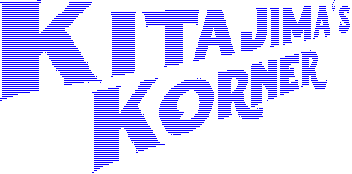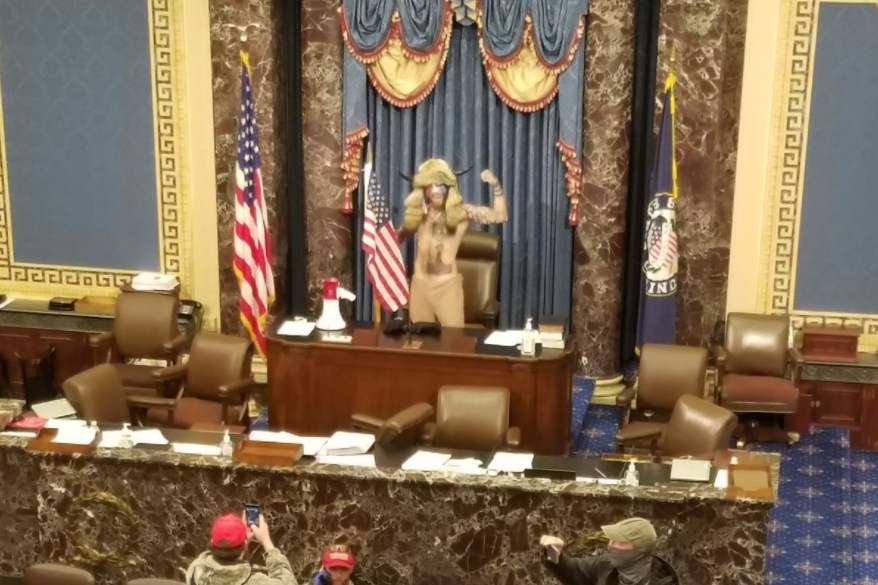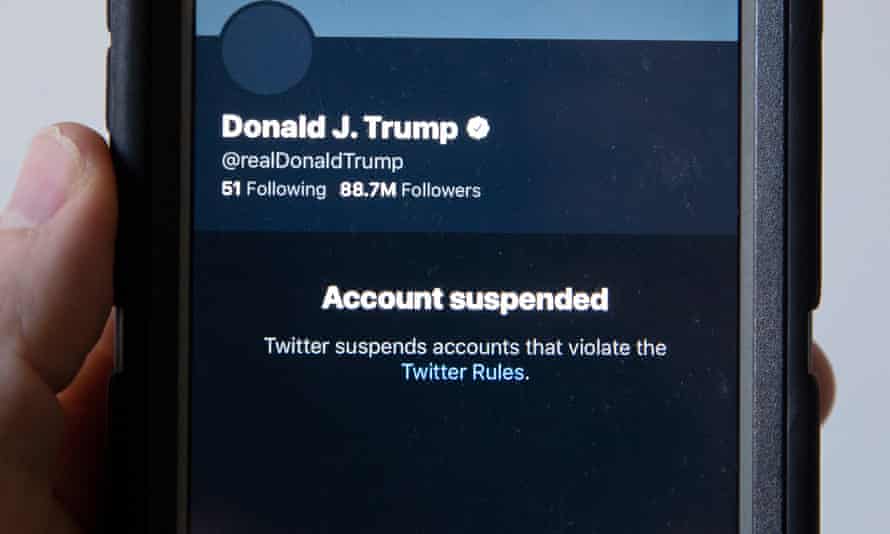

|
The 2020 US Election’s Digital Precedent  The 2020 US Election is not over, even if a victor is declared, the uncertainty may drag on for an unspecified amount of time. This writing will make the effort to remain politically impartial, as it is more focused on the principle behind what is occurring at an even more alarming rate during these times. It is crucial Netizens look past the currently partisan aspect of on-line censorship and suppression, as blindly supporting these practices now will inevitably return to haunt all of us. Alarming occurrences and actions by the technocrats during, leading up to, and after the election have raised personal anxiety levels on the current trajectory of on-line liberties. The most alarming of which was the Election Day temporary takedown of BitChute from Cloudflare, which is one of the few somewhat prominent competitors of YouTube.
The technocrats tell unsatisfied users that if they don’t like how the private websites enforce rules, then these users should go and make their own. Yet now that groups are doing just that and getting deplatformed regardless, what options will be left? Are they supposed to just form their own Internet next? It is worth noting Cloudflare also currently hosts 4chan, which for years has drawn similar criticisms as BitChute. Could BitChutes’s fate be a glimpse into “the New Normal?” The main argument posed against unrestricted free speech on-line is that as private entities, these technocrats can run their social institutions as they please. Even by that logic, there are clearly defined rules and guidelines for user conduct set in place, but that’s only in theory of course. It is not so much I call into question the validity of big tech to enforce the rules on their domain, but rather condemn the hypocritical nature of their enforcement. This webpage could be filled with an endless supply of screen captures and archived posts illustrating how selective rule enforcement is across the web, but we are all familiar with this. And even greater space could be dedicated to the distain held for big tech not allowing complete free speech, but again I digress. This selective creation and enforcement of rules comes in the form of a moral crusade. Susan Wojiciki, Jack Dorsey, Mark Zuckerburg, and Tim Cook (to name a few) are among the crusaders of morality, and most often the morality is defined by the left leaning ideas which evolves unchallenged throughout upper education. With moral crusades, some do come from genuinely well-meant intentions, but most are pursued under a guise in order to restrict freedom. In theory the US Patriot Act’s goal of identifying and eliminating domestic terrorism is commendable, but looking deeper the sinister intentions become apparent. The US government’s seized power in a time of crisis over all citizens by setting the precedent of being able to digitally spy on all citizens at whim. Technocrats are seizing upon the electoral crisis of 2020, much as they had already begun to with Covid-19. They once again are acting as the independent providers of context to events, which is not the role of a platform. By no means should the United States’s Section 230 be revoked, but legislation needs to be adapted or the ways in which these websites conduct affairs must change. The definition of morality is subject to change, and often does so at a quick rate, leading to today’s “cancel culture.” It is absurd to hold actions acceptable in the past to today’s standard, often it seems people dwell on condemning it rather than learning and understanding it. With the past being but a distant concept, the people of its time are just that. And of course, with it evolving so quickly, this leaves exponential potential for new rules and policies. YouTube particularly has struggled with this, as new rules made in direct reaction to trends have left long standing videos ineligible of monetization or being hosted. Both the right and left believe they are on that “right side of history,” but currently only one of these sides is clearly in control of the technocracy, and perhaps soon presidency. Regardless of ideological leaning of the government, this trend is inevitable for the mainstream Internet. Much like any group in power, the technocrats will only continue to extend their rule over others. But with a politically likeminded US government, it could be accelerated and have ramifications outside of the mainstream big tech social institutions. Neocities, and similar startups, could one day fall under the guise of a legislative moral crusade that on surface cannot be called into question without the committing of social suicide. In fact, it appears Mozilla is already seeking ways to address this using these tried and true crusade methods. If anything, websites must be allowed to maintain their sovereignty. An overreaching government could do far more damage to the Internet then a few popular websites censoring a select perspective on their own domains. UPDATE: January 9th, 2021Mozilla is following the playbook the author predicted, but this is just one part of an unprecedented internet purge. Author will continue to finish the ever changing draft of this writing as the situation continues to escalate due to the unprecedented actions of monopolistic big tech.UPDATE: January 10th, 2021When initially written, the US presidential victor had not been certified (and depending on who one asks, a sizable portion of the US population feels the certification was not achieved in good faith.) After months of many alleged election fraud legal battles falling short of court hearings, January 6th, 2021 loomed in the distance as a day that would surely be tense in the political theater. But no one imagined what it would culminate to… This update began drafting on January 7th, following the news President Trump had been locked from almost every social media account for the role he played in rallying the crowd which rioted and ultimately stormed the United States Capitol on January 6th. It was an unprecedented act only rivaled by Britain’s invasion during the War of 1812. Yet digital calls to violent action are not new, and they have been far more direct then those coming out of the Oval Office. To go back to the unequal rule enforcement posed earlier in this writing, the 2020 US summer riots were coordinated and amplified through mainstream social media, yet never faced the same crackdown as what is occurring now. Capitol riot sympathizers have been quick to point this out, with the selective enforcement and coverage only increasing the disdain for the establishment on their end. Additionally, these sympathizers are also displeased with Twitter choosing to fact check 2020 election interference allegations while doing nothing as some in 2016 alleged interference from Russians. As a reminder, this article is not meant to support/condone any of these claims or be partisan, rather the goal is to just present the various perspectives. Early into January 8th, more social media giants had begun instituting lengthy bans on Trump’s accounts, including Snapchat, Spotify, Twitch, and Facebook, with the goal of silencing the President until President elect Joe Biden’s inauguration. Trump had regained control of his Twitter on the 7th, but after posting that he would not attend Joe Biden’s inauguration, Twitter took this as a sign of instigation by more or less speculating how these posts could be interpreted as a call to action. With @realDonaldTrump permanently banned, many links on the YouTuube parent site’s “Twitter Hall of Shame” are unfortunately dead. Twitter had also banned alternate accounts related to Trump after he began Tweeting about censorship and repealing Section 230.  Diehard Trump staffers and supporters are also being purged from mainstream social media due to their potential to be threats and continued allegations of election interference. As a result, big tech is currently accelerating the growth of “The Fringe,” and it may have drastic real-world consequences. They have poured water on a grease fire, and now those most willing to commit violence will exodus into a dangerous echo chamber. Although now it appears big tech is actively pursuing “The Fringe” wherever they go. After being deplatformed from both Google’s and Apple’s App stores, Parler is set to also be terminated from Amazon servers that currently host the site. While it can be argued this was done to curtail potential violence, the skeptic in me can’t help but feel that is being used as a cover to eliminate any potential social media competition and further solidify the monopoly. With the (temporary?) death of Parler, Gab has become the new exodus location, and it appears Gab fully controls the infrastructure needed to resist big tech collusion. One must wonder if 4chan will be the next victim in this purge, as the /pol/ board is notorious for being a fringe hot spot. Again, this ongoing situation is unprecedented. While others on The Fringe such as Alex Jones and QAnon sympathizers have been completely deplatformed prior, it does not compare to the magnitude of doing it to the sitting United States President, one of, if not, the most powerful person in the world.
The deplatforming of the United States President is the crowning jewel to the technocrats. They have proven themselves to be above the government. With the privatization of modern public discourse, there is nothing that can stop them now. All it takes are targeted minor tweaks to the terms of service and a justification can be made for deplatforming anyone they see fit. While one side presently cheers on this act because they perceive themselves as currently in control, will they still be gleeful if big tech uses this power to silence left leaning populist candidates that threaten the status quo too much? Do not make the mistake of turning this into a partisan issue, dividing and conquering is a tried and true tactic the elites use to push their agendas onto the common person. Many are calling for the repeal of Section 230, but from my understanding it is not an ideal solution either. By holding platforms accountable to user posts, it will only solidify the pre-existing monopolies, as smaller sites will be unable to combat lawsuits brought against them. Addressing the issue of big tech monopolies and online free speech requires a very nuanced solution, but with the US government being staffed with tech illiterate geriatrics facing a sense of urgency, do not hold your breath for a favorable outcome. As time goes on, the rights of citizens have only continued to dwindle, never grow. And to address the common rebuttal of “it’s a private entity, they can do whatever they want,” I simply ask how that is going for the privatized US healthcare system? |